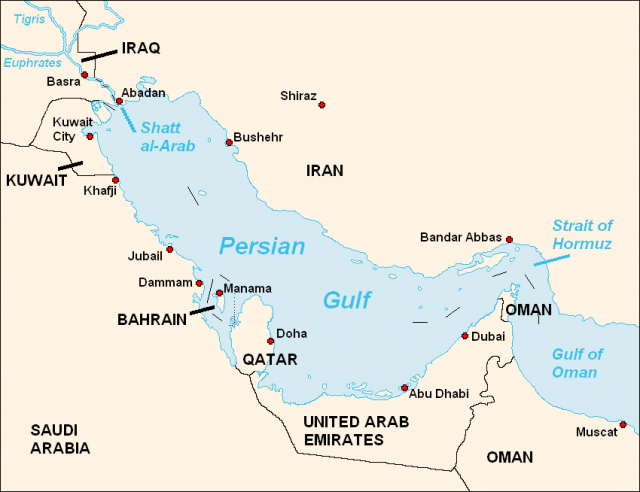International Relations
GCC Backs UN Arms Embargo on Iran
- 10 Aug 2020
- 4 min read
Why in News
Recently, the Gulf Cooperation Council (GCC) has sent a letter to the United Nations Security Council (UNSC) backing an extension of its arms embargo on Iran, just two months before it is set to expire.
Gulf Cooperation Council
- It is a political and economic alliance of countries in the Arabian Peninsula.
- It was established in 1981 to foster socioeconomic, security, and cultural cooperation.
- Members: Bahrain, Kuwait, Oman, Qatar, Saudi Arabia and the United Arab Emirates (UAE).
- All these member countries of the GCC come under the Persian Gulf Region.
Key Points
- The GCC has alleged that Iran had not ceased or desisted from armed interventions in neighbouring countries, directly and through organisations and movements armed and trained by Iran.
- Allegation on Iran:
- The UN, the USA and other armament experts have accused Iran of providing arms to Yemen’s Houthi rebels.
- Iran allegedly arms Hezbollah fighters in Lebanon and Syria and also provides weapons to Shiite militias in Iraq and terrorist groups in Bahrain, Kuwait and Saudi Arabia.
- The letter also mentioned Iran’s shootdown of a Ukrainian passenger plane and its navy accidentally killing 19 sailors in a missile strike during an exercise.
- Iran also is suspected of launching an attack on Saudi Arabia’s oil industry in September 2019.
- Arms Embargo:
- In 2010, the UN banned Iran from purchasing foreign-made weapons like fighter jets, tanks and warships amid tensions over Iran’s nuclear program.
- The embargo blocked Iran from replacing its ageing equipment, much of which had been purchased before the 1979 Islamic Revolution.
- An earlier embargo had targeted Iranian arms exports.
- In 2015, under Iran’s nuclear deal (Joint Comprehensive Plan of Action), the UN agreed to end the arms embargo in October 2020.
- In 2018, the USA unilaterally withdrew from the deal as a part of the maximum pressure campaign to hurt Iran’s already ailing economy.
- In 2010, the UN banned Iran from purchasing foreign-made weapons like fighter jets, tanks and warships amid tensions over Iran’s nuclear program.
- Internal Conflict in GCC: Even though the GCC has offered a unified statement, it remains affected by internal conflict among the member nations. For example:
- Qatar crisis, which saw Bahrain, Egypt, Saudi Arabia and the Emirates cut diplomatic ties with Qatar and launch a boycott of the nation beginning in 2017.
- Qatar has had good relations with Iran and has used its airspace while sharing a vast offshore oil and gas field with Tehran (Iran’s capital).
- Qatar is home to the massive Al-Udeid Air Base and the forward headquarters of the USA military’s Central Command.
- Oman also has had close ties to Iran and has served as an interlocutor between Tehran and the West.
- On the other hand, Bahrain, Saudi Arabia and the UAE are suspicious of Iran and accuse it of stirring up dissent among Shiite populations in the region.
- Qatar crisis, which saw Bahrain, Egypt, Saudi Arabia and the Emirates cut diplomatic ties with Qatar and launch a boycott of the nation beginning in 2017.
- Iran’s Stand:
- Iran has denied the various accusations of its involvement in arms supply.
- Iran has condemned the GCC letter and called it an irresponsible statement that serves the USA’s interests.
- It has also criticized the GCC countries for being “among the largest arms buyers in the region and the world,” even amidst the economic downturn caused by the Covid-19 pandemic.





